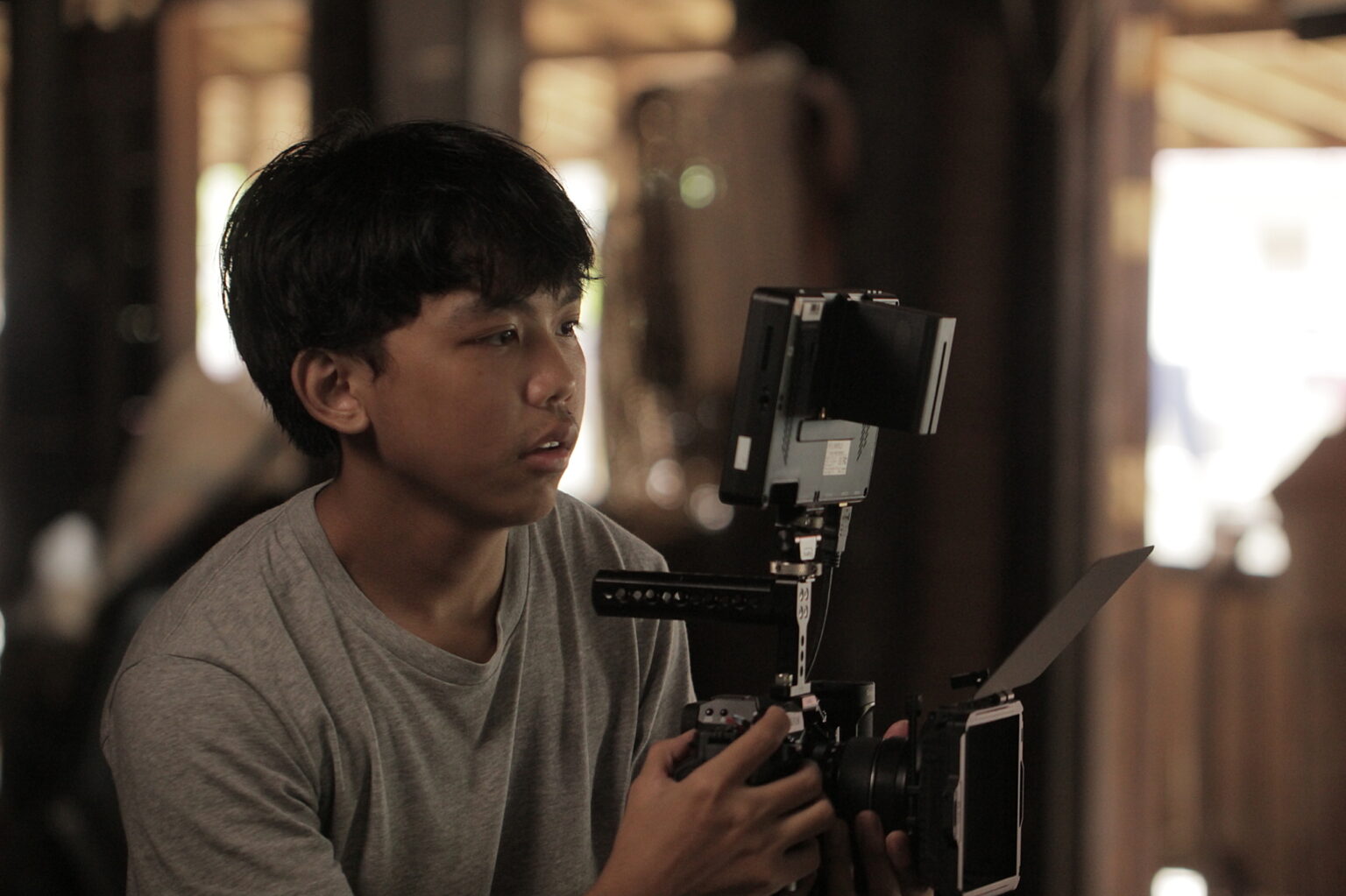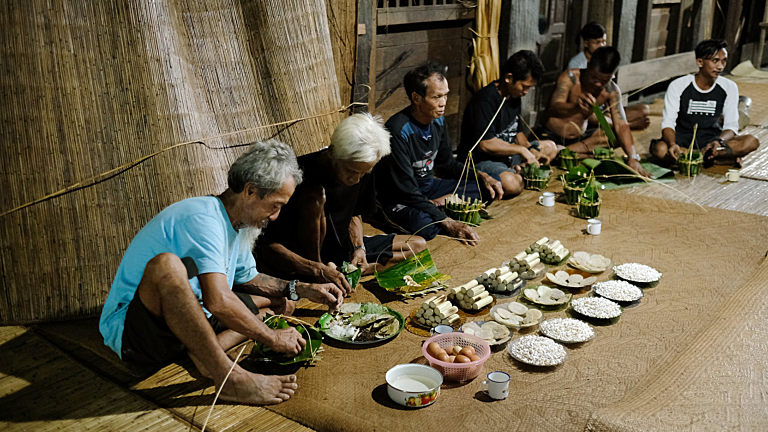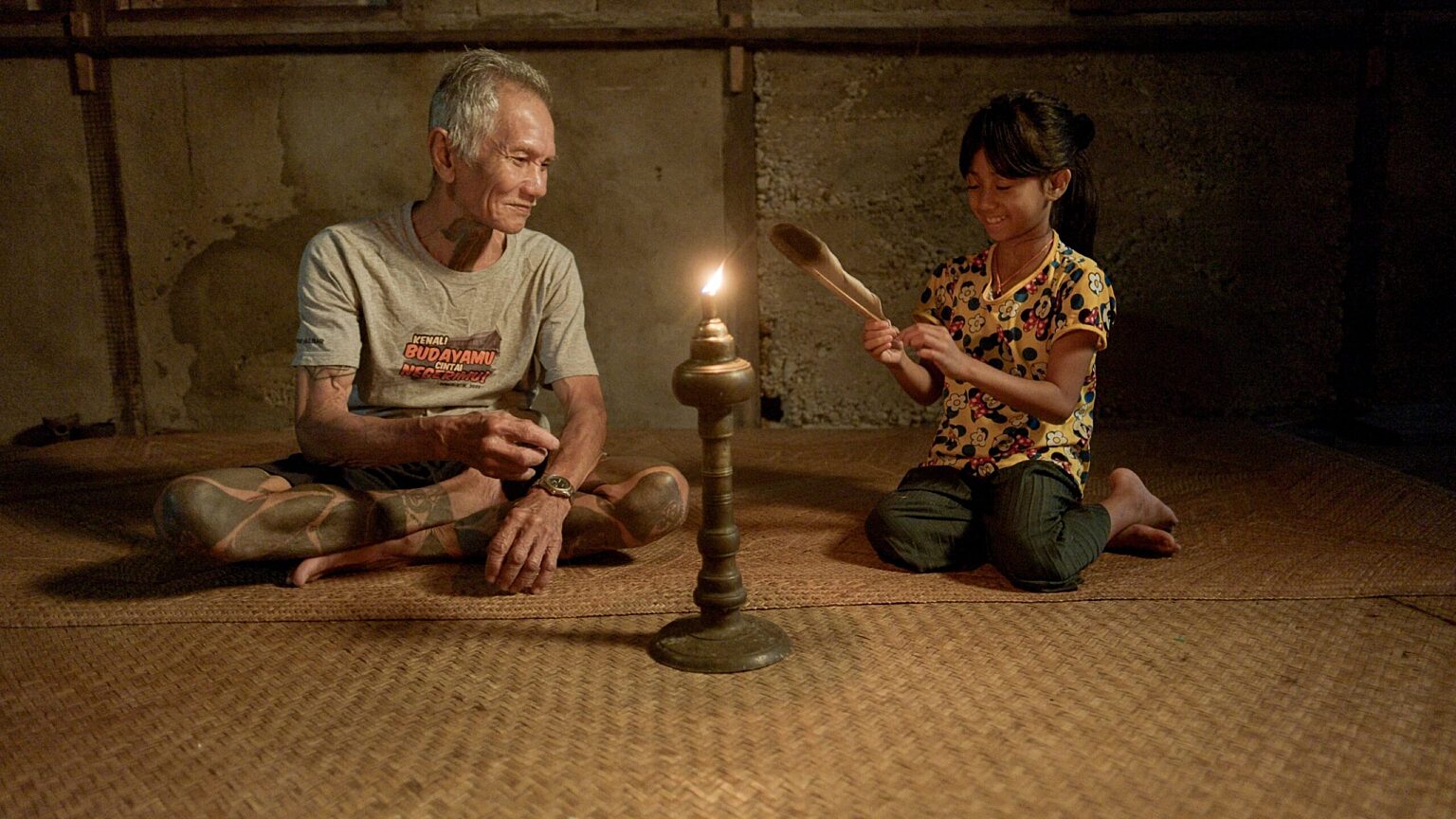Through customary law and collective decision-making, an Indigenous community protected an estimated 1.31 million metric tons of forest-based carbon.
Having faced numerous challenges that affect Indigenous Peoples worldwide, the Dayak Iban group in the Sungai Utik community maintain a rich store of traditional knowledge that underpins their system of self-governance and protects the rich tropical rainforest that surrounds their longhouse in West Kalimantan, Indonesia.
For decades, they have confronted the lack of legal recognition of their status as guardians of their ancestral lands and the pressure stemming from the expansion of extractive industries.
Nonetheless, the Dayak Iban Sungai Utik have defended their 9,504 hectares of customary forest against illegal logging, palm oil production, gold mining, and corporate interests. They have protected an estimated 1.31 million metric tons of forest-based carbon, according to the United Nations.
This is because, in Sungai Utik, a healthy nature is more important than monetary wealth. The land is mother, the forest is father, and the river is blood. Nature is treated “as if it is our own bodies.”
“Our village is still surrounded by forest. We live in a longhouse next to the Utik River. In our language, the word ‘Utik’ means clear or pure, referring to the crystal-clear water in our river. Our river is clear because we live by our customary knowledge of nature. We have protected our land from deforestation for hundreds of years”, said Kynan Tegar, a Sungai Utik community member and Indigenous filmmaker, to Equator Initiative.
In 2020, the Indonesian government issued a decree recognizing the Sungai Utik’s territory as customary forest and designated their right to manage it following traditional laws. This was a key milestone in the Sungai Utik’s fight for self-determination and their Indigenous land rights, the result of four decades of campaigning by the community.
Today, Indigenous cultural practices of cooperation, reciprocity with nature, and sustainable use and management of resources make Sungai Utik an exemplary model and icon among other Indigenous Peoples. The community receives many visitors, including Indigenous leaders, to learn how they preserve their culture and traditional knowledge while maintaining strong community unity and cohesion.
A 40-Year Journey of Protecting the Forest
Since the 1970s, companies have attempted to exploit the area’s trees and land. While research shows that other areas of the Borneo island, where Sungai Utik is located, have had their native forests impacted by logging, fire, and conversion to plantations at unprecedented scales since then, that has not been the case in Sungai Utik.
Local elders rejected financial offers and resisted the pressure coming from external discourses that portrayed local Indigenous Peoples as “backwards people” that should be “developed”. For the Dayak Iban Sungai Utik, it would be unbearable to see their ancestral territory destroyed.
“When people first came here, wanting to take our land, we refused them”, said Apai Janggut, a leader from Sungai Utik at the forefront of the battle against extractive industries since the 1970s, at the documentary film “Sungai Utik – The Fight for Recognition”, directed by Kynan Tegar. “Many companies tried to come into our forest. We drove them all away. … This is our territory and we don’t want it to be ruined. The land, the fruits, the fish here are ours. The trees here are ours. This customary territory is ours to protect.”
The community developed strategies to resist such threats through collective decision-making from their 214-meter longhouse, which represents the heart of the social, economic, cultural, and political structure of the Dayak Iban Sungai Utik. Rumah Betang, as the longhouse is referred to in the local language, is a key part of their Indigenous identity.
Land monitoring is equally important. Local Indigenous Forest Guard groups are assigned to conduct territorial patrols through the forest and along its boundaries, looking for any trespassers, robbers, illegal miners, or illegal loggers. Regular monitoring is carried out at least every three days.
Customary Rules for Forest Management and Agriculture
The Dayak Iban Sungai Utik also have their own customary spatial system of resource conservation and management, guided by strict customary rules.
6,000 hectares of their land is designated as protected forest, which are divided into three areas: Kampung Taroh, which cannot be used for agriculture or logging, because it serves as a source of fresh water for the longhouse; Kampung Galau, which is used for harvesting medicinal plants and wood; and Kampung Endor Kerja, which is used for agriculture, hunting, and collecting wood. A further 3,504 hectares is used for crop cultivation through a traditional rotation system.
This approach provides the community with food, medicine, and clean water. It has been proven effective in maintaining the sustainability of the ecosystems in their territory, including forests, wetlands, and the Sungai Utik river.
In 2008, the Dayak Iban Sungai Utik received a Certificate of Sustainable Forest Management from Lembaga Ecolabel Indonesia, a credible and independent certification body. In 2019, they received the Kalpataru Award from the Vice President and the Ministry of Environment and Forestry of Indonesia.
In the same year, the Dayak Iban Sungai Utik was one of the communities selected worldwide to receive the UN Development Program’s Equator Prize. The Equator Prize is given in recognition of outstanding community initiatives that advance nature-based solutions to climate change and local sustainable development.
Sungai Utik is a member of the Wayfinders Circle, an alliance of 15 Indigenous Peoples from around the world standing at the frontlines of guardianship. They protect their lands, waters, and territories, guided by ancestral knowledge transmitted from one generation to the next.
The Wayfinders Circle is convened by Nia Tero (@NiaTero), Pawanka Fund (@PawankaFund), and the World Union of Indigenous Spiritual Practitioners (WUISP).



